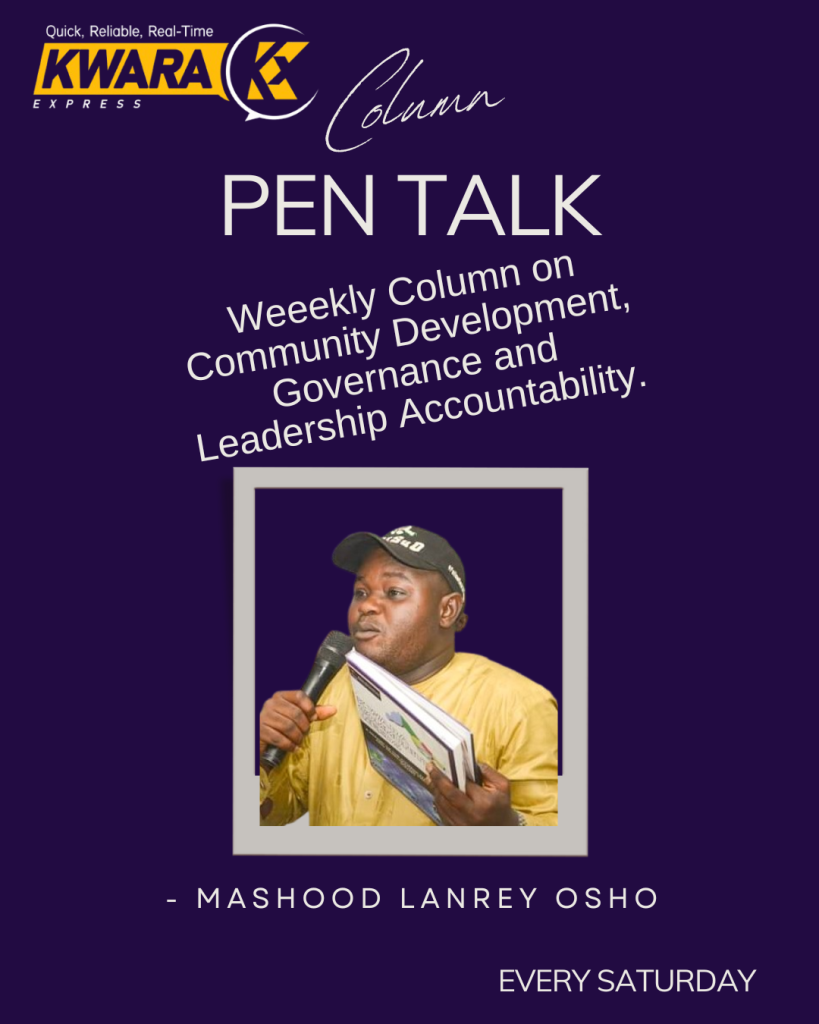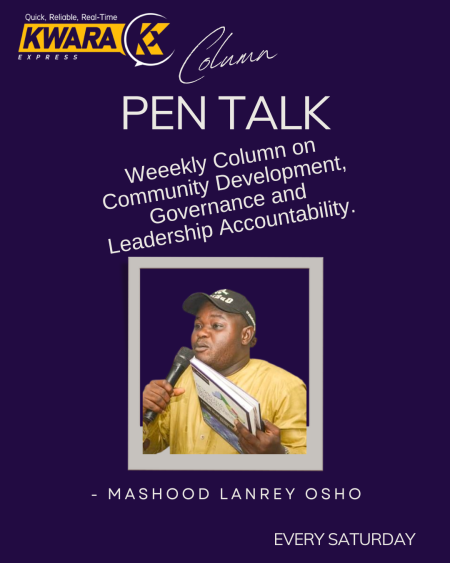Fellow Kwarans, I feel compelled to address the pressing issues in our state, driven largely by our collective indifference. Our challenges—such as the infrastructure gap, high unemployment, widespread poverty, insecurity in Kwara South, and shortcomings in the education system—are all outcomes of this apathy. Since its establishment as one of the original twelve states in 1967, Kwara has given rise to remarkable scholars, professors, lawyers, musicians, and iconic footballers. Yet, we often shy away from confronting inequality, injustice, and corruption, mistakenly branding those who raise their voices as opponents of the government in power.
In a meeting with former EFCC Ilorin zonal commander, Isiaq Zaru, I learned that Kwara is one of the few states that rarely reports corrupt cases. This lack of accountability perpetuates injustice and hinders progress in the state. A personal experience has driven me to write this article. Since my secondary school days at Mount Carmel College, Oloje Ilorin, schools in Kwara State have required new students to bring hoes, cutlasses, plastic buckets and brooms as admission requirements.
While maintaining cleanliness in the school premises is essential, I question the annual collection of these items from approximately Between 59,980 to 60,000 students are admitted into Junior Secondary Schools (JSS1) and Senior Secondary Schools (SS1) across Kwara State annually. This raises questions about the storage and management of the required items.
Every year, new students are asked to bring hoes, cutlasses, and brooms. One wonders where these items are stored and why they cannot be used for at least ten years before requesting new ones.
It’s understandable that schools need to maintain cleanliness and clear bushes to prevent snakes, scorpions , rodents and other dangerous animals. Students are tasked with this responsibility, which is why most schools in Kwara State designate Wednesday as Labour Day for cleaning and maintenance.However, the annual collection of these items requires scrutiny. The storage and utilization of tens of thousands of hoes, cutlasses, and brooms every year must be audited.
When I got admitted into Mount Carmel College, Oloje Ilorin, I, along with other newly admitted students, brought brooms, cutlasses, and hoes. Our Labour teacher, a man who could discipline students like a Nigerian soldier disciplines unruly citizens, was feared by all. No student was exempt from fearing him. upon sighting him, the thought that came to mind was, “This man will call me and beat me, and the next instinct was to run.
Once you fell into his hands, he would beat you, and when you cried out, he would say, “Kem, Kem meaning quiet, quiet. That’s why we nicknamed him “Kem.” If you dared call him “Kem,” he would become frustrated and angry, call you out, and run after you, if he caught up with you, he would beat the hell out of that student. He usually confiscate one of our school sandals and leave you with one sandal until you served punishment.
Every Wednesday, all students would assemble at his office, where they would be grouped and assigned portions of land filled with grass to cut. His office was always full of cutlasses and hoes, and students one pair of school sandals. As a younger boy at that time, I always wondered what the school would do with these items collected from students.
It’s time to start collecting these items every ten years and not every year anymore. I should have suggested that the government hire people to keep the school premises clean and charge parents to pay a token. However, students need to learn how to keep their environment clean and prepare them for their future, that’s what has taken us where we are today as a result of what we passed through in schools. Alliamduliah for where we are today,But it should be once in ten years.
I urgently call upon the Commissioner of Education, Hajia Sa’adatu Moddibo Kawu, to thoroughly investigate and promptly address this corrupt practice within 30 working days. Specifically, I request that she instructs all secondary school principals to cease collecting hoes, brooms, cutlasses, and plastic buckets from new students.
Failure to take decisive action within the stipulated timeframe will compel me to seek legal recourse. Within 30 working days, I will approach the court and petition for an order to compel the following parties to stop exploiting parents,Kwara State Governor. Commissioner for Education ,Kwara State Ministry of Education., Association of Nigerian Conference of Principals of Secondary Schools (ANCOPS), Kwara State Chapter to immediately halt the unauthorized collection of hoes, brooms, cutlasses, and plastic buckets.
If we fail to combat corruption at the secondary school level, it will escalate into a larger issue. The alarming rate of poverty in Kwara State, coupled with the staggering number of out-of-school children, is a pressing concern. Reports indicate that 60% of pupils who graduate from basic schools fail to transition to secondary school in Nigeria, contributing to the rising number of out-of-school children.
Furthermore, 75% of secondary school graduates do not proceed to tertiary institutions, resulting in an overwhelming number of O-level holders exceeding university graduates. These figures continue to surge annually.
The excessive requirements demanded by teachers significantly contribute to these statistics. With the increasing institutional fees, more children will be forced out of school, making it common to find families with O-level holders who cannot afford to pursue higher education, as well as those who didn’t proceed after primary school.It is imperative that we tackle this issue head-on and liberate parents from the burdens imposed by principals.
One cannot help but wonder why plastic buckets are being collected from new students, as they serve no purpose other than burdening them. In reality, most secondary schools in Kwara State have transitioned to day schools, with only a few still operating as boarding institutions, such as Queen Elizabeth Secondary School , Government day secondary school Ilorin and others.
The question remains: what possible use could day students have for plastic buckets? Are students expected to purchase plastic buckets for teachers to wash their office floors? What becomes of these collected items? How are they stored annually?
These pressing questions demand answers from, The Commissioner of Education,The Ministry of Education and Principals of public secondary schools and kwara state government.
Failure to provide satisfactory responses within 30 working days will prompt me to seek legal action, compelling them to cease exploiting and milking parents dry.Let’s demand accountability and transparency in our education system. Together, we can create a better future for Kwara State.
Serious allegations of exploitation and illegal fees have been leveled against principals of many secondary schools in Kwara State. I recall a similar incident during the Abdulfati Ahmed Government when the Ministry of Education mandated the sale of first aid boxes in all secondary schools. My organization, ENetSuD, intervened and demanded that the ministry halt the sales. The then-Commissioner of Education, Mrs. Oniyangi, intervened, inviting the contractor to meet with me. During our meeting in our office at Mejindadi street Ojaiya Ilorin, the contractor revealed how he introduced the first aid boxes to the Kwara State Ministry of Education and imposed them on all secondary schools. I insisted that the sales be stopped, and ultimately, we successfully halted the practice.
Presently, many parents struggle to provide for their children’s education, compounded by economic hardships. The requirement for students to provide unnecessary items like hoes, cutlasses, plastic buckets, and brooms must be abolished. Alternatively, these items could be collected once in ten years. If not, I will be forced to seek legal action to compel the schools to cease this exploitation.
Enough is enough this exploitation must end.












